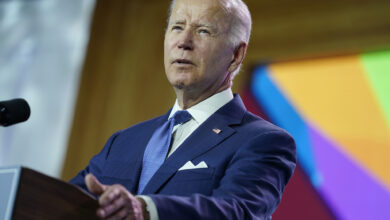Ahmed al-Tayyeb, the grand sheikh of Al-Azhar, the highest religious authority in the Sunni Muslim world, renewed on Monday his rejection of any modifications to Article II of the Egyptian Constitution.
The head of the Egyptian Orthodox Church, Pope Shenouda III, had suggested an addition to Article II, which stipulates Islamic law as the main source of Egypt's legislation.
On Sunday, Shenouda asked Deputy Prime Minister Yehia al-Gamal to add a clause to the article for other non-Muslim denominations. Al-Gamal promised to study the request and said he visited the cathedral to check on Shenouda's health.
In statements to the state-owned Middle East News Agency, al-Tayyeb said that any modification of Article II would affect Egypt's Islamic identity.
Al-Tayyeb went on to say that he was not referring to the theocratic religious sense of an Islamic identity, since the Islamic state has proven its democracy since the first Islamic eras.
The majority of Egyptians are Sunni Muslims, but in addition to Coptic Christians, there are other minorities, such as Jews, Baha'is and Shia Muslims.
A referendum on a package of constitutional changes on Saturday showed that more than 77.2 percent of Egyptians who voted supported the amendments, which included limiting presidencies to two four-year terms and imposing restrictions on declaring a state of emergency.
But the changes do not tackle Article II, which states that Islam is the country's official religion. The article has been in place since the Constitution was changed in 1971. It also says that Arabic is the official language of Egypt and that Islam is the main source of legislation.
Last February, describing the article as an established principle for the state, al-Tayyeb said that changing Article II may "provoke sedition."
But the church's rejection of al-Tayyeb's statements has been circulated on several Coptic websites.
The websites also highlight suggestions by liberal Copts and Muslims, as well as rights activists, to amend the article, propose a different text, and state that “the principles of divine religions and human rights agreements are the main sources of legislation.”
Translated from the Arabic Edition




